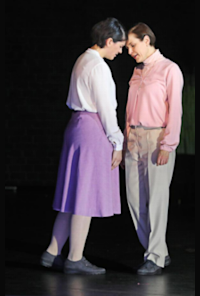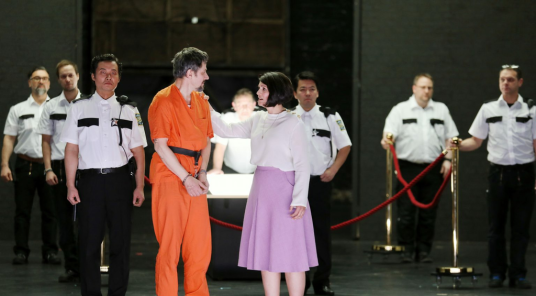»Dead Man Walking!« is the cry of American prison wardens when a death row inmate starts his walk to the execution. Sister Helen Prejean chose this reputation as the title of her book in which she describes her encounter with a death row inmate. Sister Helen's experiences are also the focus of Jake Heggie's opera of the same name. After having only exchanged pastoral letters with Joseph de Rocher, who was sentenced to death for rape and murder, he now asks for a personal meeting as the date of his execution approaches. Contrary to expectations, Helen does not find a repentant sinner, but a perpetrator who denies his guilt and only hopes for her support and spiritual guidance in his plea for pardon. Sister Helen does not have to and does not want to decide about his guilt, but she cannot refuse him Christian support. During the time she spends in prison, her core beliefs and beliefs are severely tested. She discovers the human side of the murderer, gets to know his family - but is also confronted with the deep suffering of the victims' relatives, who react with incomprehension to their commitment to the right to life of a proven guilty party.
The opera leaves no doubt as to the guilt of the condemned man. But what begins as a morally clear story quickly leads into the gray area between guilt and responsibility, revenge and forgiveness. Jake Heggie's suggestive and exciting musical language, which, in addition to operatic elements, incorporates American musical styles such as blues and gospel and does not deny its proximity to film music, opens up direct and emotional access to a topic that initially seems unusual for the opera stage: the justification of the death penalty.







